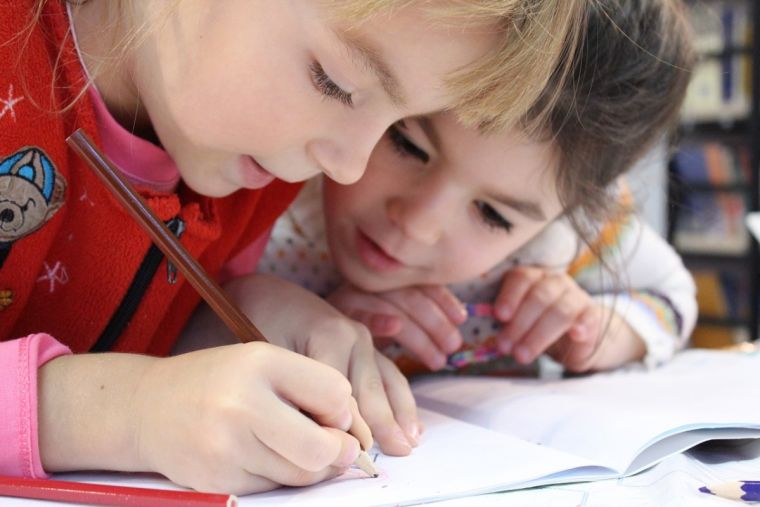It's a new term at school. But should we have a new mindset as disciples?
So here we are in September. The new term, with all its squeaky new shoes and spanking new stationary stuffed pencil cases, has begun.
When it comes to getting ready for a fresh new term I've realised that everything revolves around an expectation of growth. You only have to look at the doorstep photos with trailing blazer arms and super sized school bags dangling by wrinkled trousers to see what I mean.

Plunge into a new pencil case and the new maths kit reflects the expectation of the need for new tools to solve increasingly trickier problems.
The giant eraser reveals the expectation that for a growth in knowledge and understanding to take place, many mistakes will be made.
All this new term prep has got me thinking.
How much prep time do we put in for a fresh new term as Jesus followers? Do we have great growth expectations there? For our children or for ourselves? Have we spent hours agonising over how we can equip our kids this year with faith fuelling experiences or life changing challenges?
Are we paying as much attention to how their spiritual shoes are stretching or shrinking?
There are endless amounts of articles on how to prepare children mentally and emotionally for the challenges of the year ahead, such as how to cultivate a 'growth' rather than a 'fixed' mindset' to nurture 'resilience' by leading Stanford psychologist Carol Dweck.
Dweck explains how a 'fixed mindset' views qualities like intelligence and ability as carved in stone. Tasks become an assessment of ability and therefore worth. Failure is devastating and to be avoided at all costs.
A 'growth mindset' believes that basic qualities can be grown through effort and learning. With challenge, mistakes and failure seen as opportunities for growth not obstacles to be avoided.
It's not so easy however to out how we could be applying these important principles to discipleship. Thankfully the Fuller Youth Institute has carried out extensive research on how to intentionally build more of a growth rather than a fixed mindset and a more robust, resilient faith in the next generation. Many young people see faith like a jacket: something they can put on or take off based on their behaviour. When they make a mistake, or face challenges, they feel that they have 'blown it' and some walk away not understanding the power of grace to turn this into an opportunity for learning and growth.
Jesus and the apostles worked on the basis of a growth mindset in the way that they developed people. The disciples got it wrong time and again, yet each time Jesus taught them something new and important. Their ignorance or inability was thankfully not fixed. They could grow out of it. Peter's failure was a doorway which led him to a greater understanding of God's grace.
'With God,' as Jesus said, 'all things are possible.'
As John Ortberg points out: 'It is this mindset that made Joshua and Caleb see possibilities where 10 other spies saw only giant roadblocks. It is this mindset that caused David see an opponent too big to miss, while everyone else saw one too big to hit. It was ultimately this understanding of how things are that allowed Jesus to go to a cross knowing that stones and death can't block the God of the resurrection.'
Missiologist Allan Hirsch says: 'Without a growth mindset, people will likely be satisfied with a mediocre distortion of biblical Christianity – 'a standard churchy spirituality that doesn't require any real action, courage, or sacrifice'.
At the beginning of this term, could we carve out time to prayerfully pay attention to how we are equipping the next generation as well as ourselves to have more of a growth mindset this year? And to embrace our mistakes, mess ups and challenges as opportunities rather than obstacles?
1. What specific area is God wanting us to grow in this term? A fruit of the spirit? A spiritual discipline?
2. Which kit will help us to go deeper in this area? Books? Studies? Podcasts? Experiences?
3. Who can be helpful teachers/ good role models in this area this term?
4. Where is a good environment to be stretched and challenged in this area? Projects? Missional community? Social action?
5. How can we encourage each other to turn our mistakes or challenges into opportunities for growth?
As Abraham Maslow once said: 'In any given moment we have two options: To step forward into growth or to step back into safety.'
Esther Stansfield is a freelance writer and blogger who has worked for Tearfund and Scripture Union.











